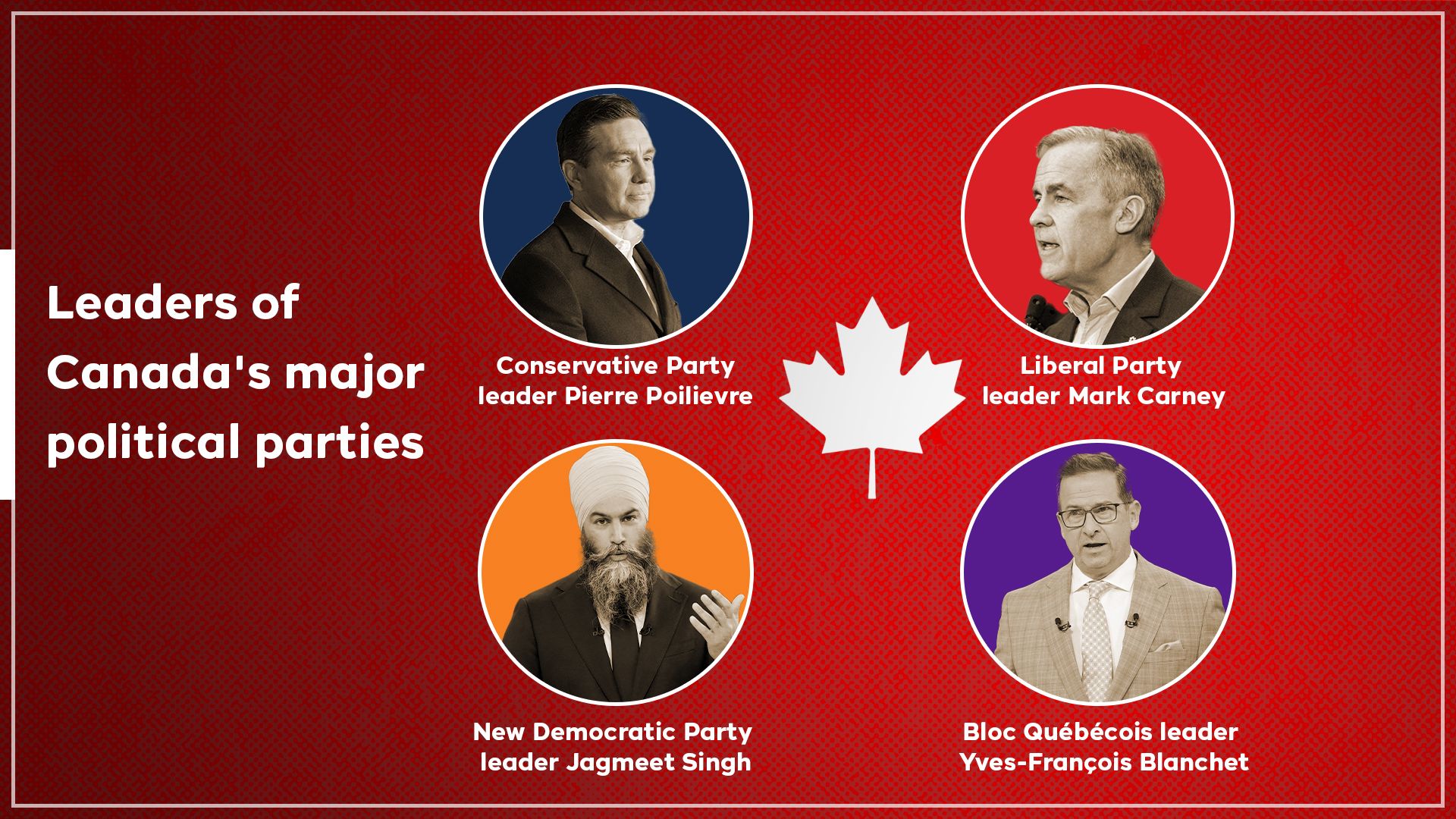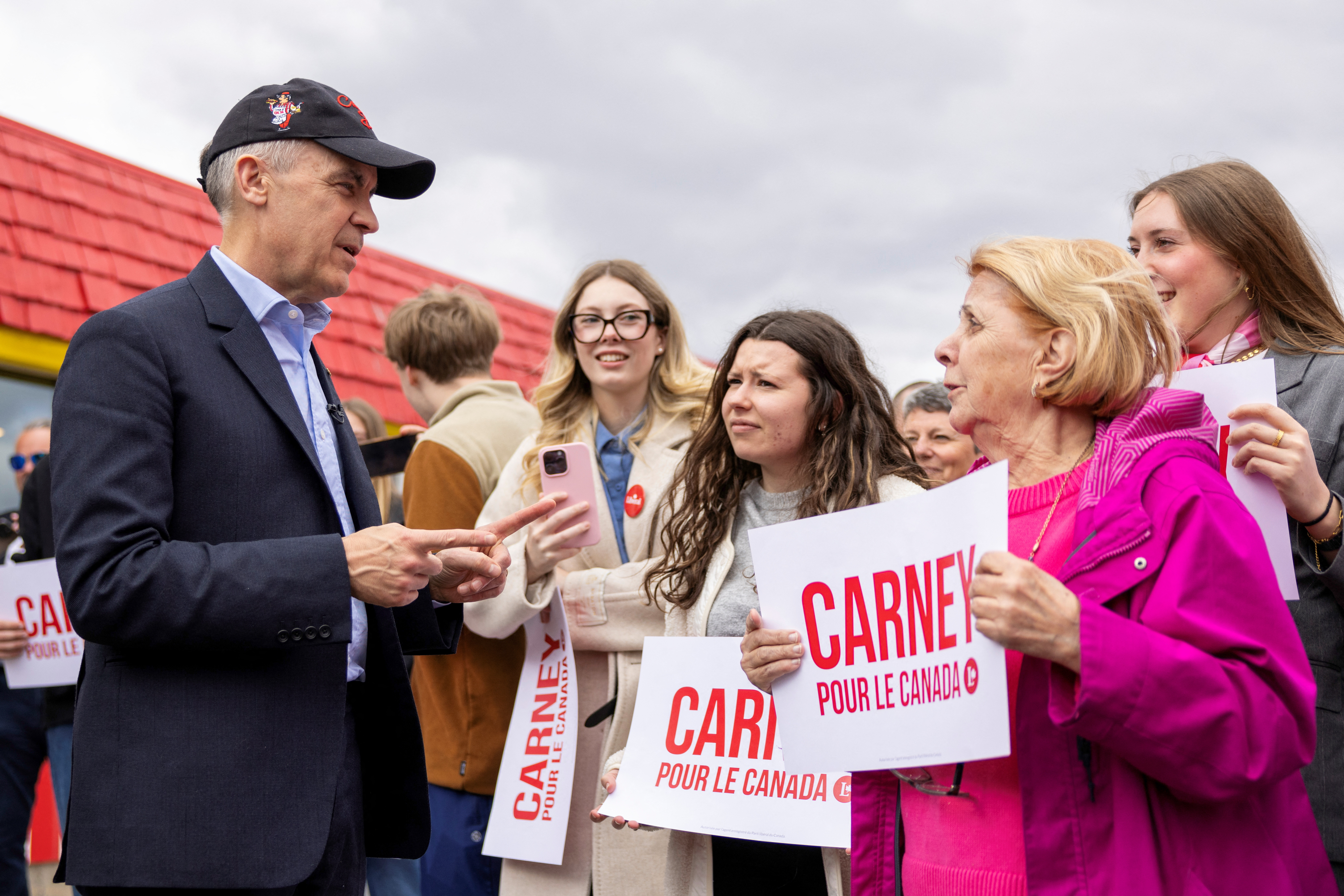Washington DC — Months ago, Canadian voters were primarily concerned with the cost of living and housing crisis. The ruling Liberal Party, led by Justin Trudeau until his resignation in March 2025, had been trailing the Conservative Party, led by Pierre Poilievre, by double digits in polls since mid-2023.
Then an unexpected event shifted voter sentiment and altered campaign strategies.
US President Donald Trump's tariffs on Canada and talk of making it America's "51st state" made "dealing with Trump" a key election issue, overshadowing economic concerns and galvanising voters.
New polls revealed Mark Carney, Trudeau's successor as PM, leading over Poilievre and likely to win the April 28 election — a mood change influenced by Trump's economic policies reshaping North American country's political scene.
"How it played out was a bit complicated," Randall Morck, a prominent Canadian economist, tells TRT World.
Morck, a University of Alberta business professor, observed Carney's sudden prominence coinciding with the onset of Trump's trade war.
He says Poilievre had maintained his popular centre-right stance on tax reforms, law and order, energy exports, infrastructure and red tape removal, positioning his Conservative Party ahead of the Liberals.
"But when Trump attacked Canada's economy, Poilievre's continued focus on those issues seemed to suggest he lacked a clear response to Trump's trade war," says Morck, adding Carney rapidly shifted Liberal policies to the centre, "effectively mimicking many key Conservative policy proposals."
"Meanwhile, support for the New Democratic Party (socialists) and Parti Quebecois (French Canadian nationalists) partially collapsed, again likely because social welfare and ethnic initiatives suddenly paled relative to the economic attacks by the US, and largely shifted to the Liberals."

'Canada First'
Trudeau, in power for over nine years, faced daily opposition attacks on domestic issues like inflation, high immigration and a housing crisis.
Labelled by critics as a "Trump-like leader" and a polarising figure in Canada, Poilievre, 45, has positioned himself as the "common sense" candidate for Canadians frustrated by rising costs and centralised power under Liberal rule.
He has focused on affordability, a key voter concern, appealing to the working class. He even adopted "Canada First," echoing Trump's "America First" slogan.
After Trump intensified the trade war with allies, Canadians reacted with nationalism, boycotting American products and cancelling US travel.
"Trump's trade war was like a punch in the face from someone we thought was a best friend — a devastating betrayal," says Morck.
However, it indirectly boosted Carney's ratings, positioning him as the likely winner of Monday's federal election.
The US has imposed a 25 percent tariff on Canadian goods not meeting USMCA rules of origin, affecting imports like steel, aluminium and automobiles.
Canadian energy goods, like oil and natural gas, face a 10 percent tariff. From April 3, 2025, a 25 percent tariff applies to Canadian automobiles and parts not complying with USMCA rules.
Carney has leveraged the tariff wars with the US to portray himself as a staunch defender of Canadian sovereignty against Trump.
On Tuesday, he campaigned in Quebec, emphasising that only he could shield the French-speaking province from Trump, who has threatened to annex Canada.
"This threat is not only an economic threat, it is an existential threat. To be clear, President Trump is threatening the distinct identity of Quebecers," Carney told the crowd in the city of Trois-Rivieres.
"We'll be able to protect Quebec, protect our sovereignty and build Canada strong ... if you want a strong government that will defend Quebec and stand up to Donald Trump, you must vote for that," Carney said, seeking a strong mandate.
Carney, during his campaigns, has also vowed to diversify Canada's economy with less dependence on tariff-heavy US markets.
But is it possible to achieve?
"NAFTA (or the North American Free Trade Agreement) made trade with the US (and Mexico) so much cheaper and simpler than trade with other countries that the US became an overwhelming source of inputs and buyer of exports. That seemed fine when the US seemed to be a friendly neighbour," Morck tells TRT World.
Diversifying trade necessitates extensive infrastructure development. Oil and gas pipelines must be redirected to ocean ports, and rail freight systems expanded to accommodate increased container volumes, says Morck.
"To do this, the Liberals have adopted Conservative Party red tape removal reforms to allow faster infrastructure development, especially of pipelines. The red tape is primarily lengthy (critics say interminable) environmental and social review requirements implemented by Trudeau's government, and repealing it would likely upset environmentalists," he adds.

'Not a MAGA guy'
As of now, Carney, a 60-year-old political newcomer and former head of the central banks of Canada and Britain, is enjoying a surge in popularity.
A Nanos poll released on Tuesday shows the Liberals at 42.6 percent national support, Conservatives at 37.1 percent, and New Democrats, competing for the centre-left, at 10.4 percent.
A result like this on Election Day would grant the Liberals a majority in the 343-seat House of Commons.
Conservative leader Poilievre, whose popularity once soared because of a media strategy, was set for a decisive win. However, his perceived alignment with Trump-like "MAGA" politics has caused him setbacks since Trump's tariff war and annexation talks.
Carney has depicted Poilievre as akin to Trump, both in rhetoric and intent. His Liberal Party has been putting out ads focusing on the similarities between Poilievre and Trump.
And NDP leader Jagmeet Singh has criticised Poilievre for being "endorsed by Elon Musk," who is associated with the Trump administration's Department of Government Efficiency.
Poilievre has consistently stated, "I'm not a MAGA guy."
Even as he blames Liberals for leaving Canada vulnerable to Trump, he has vowed to fight back against Trump's trade war, saying in his recent address that, "There is no doubt that our economy will suffer. But so will yours, President Trump. In fact, you're already paying the price with trillions of dollars erased in stock market value over the last month of these threats."
Top Canadian economist Morck currently sees little difference between Carney and Poilievre.
"Carney has mimicked many of Poilievre's key economic and social reforms. Poilievre has mimicked Carney's responses to Trump's trade war, albeit perhaps a bit late," says Morck.
Morck notes that Poilievre plans to diversify trade away from the US and may impose tariffs on US goods or export taxes on Canadian goods to the US.
"Both Carney and Poilievre would target these to do maximum damage to the US economy, in response to Trump's tariffs, which seem designed to do maximum damage to Canada's economy. The Liberal and Conservative Parties now propose very similar policies, both are courting the median voter," says Morck.
















